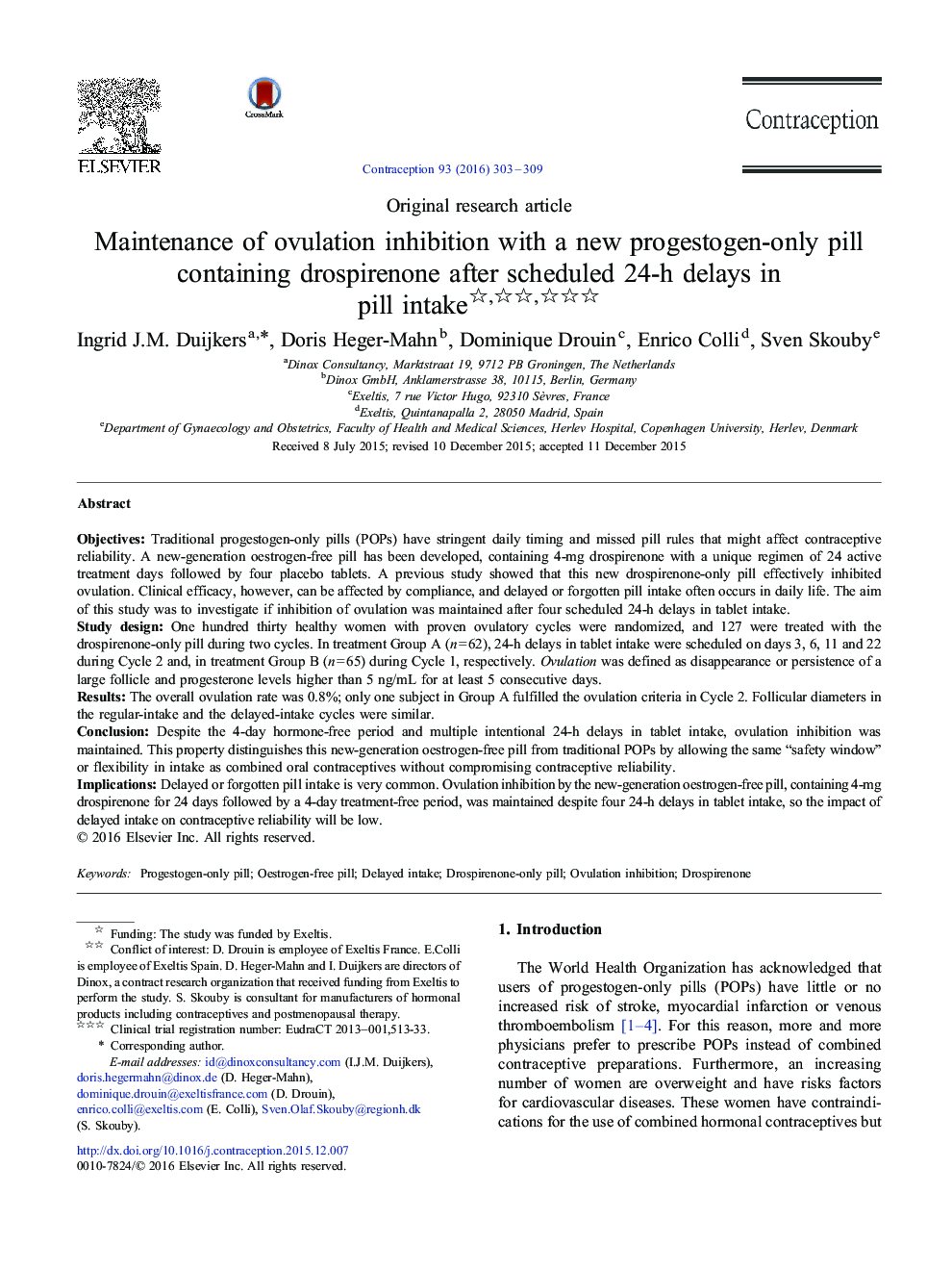| Article ID | Journal | Published Year | Pages | File Type |
|---|---|---|---|---|
| 6170745 | Contraception | 2016 | 7 Pages |
ObjectivesTraditional progestogen-only pills (POPs) have stringent daily timing and missed pill rules that might affect contraceptive reliability. A new-generation oestrogen-free pill has been developed, containing 4-mg drospirenone with a unique regimen of 24 active treatment days followed by four placebo tablets. A previous study showed that this new drospirenone-only pill effectively inhibited ovulation. Clinical efficacy, however, can be affected by compliance, and delayed or forgotten pill intake often occurs in daily life. The aim of this study was to investigate if inhibition of ovulation was maintained after four scheduled 24-h delays in tablet intake.Study designOne hundred thirty healthy women with proven ovulatory cycles were randomized, and 127 were treated with the drospirenone-only pill during two cycles. In treatment Group A (n = 62), 24-h delays in tablet intake were scheduled on days 3, 6, 11 and 22 during Cycle 2 and, in treatment Group B (n = 65) during Cycle 1, respectively. Ovulation was defined as disappearance or persistence of a large follicle and progesterone levels higher than 5 ng/mL for at least 5 consecutive days.ResultsThe overall ovulation rate was 0.8%; only one subject in Group A fulfilled the ovulation criteria in Cycle 2. Follicular diameters in the regular-intake and the delayed-intake cycles were similar.ConclusionDespite the 4-day hormone-free period and multiple intentional 24-h delays in tablet intake, ovulation inhibition was maintained. This property distinguishes this new-generation oestrogen-free pill from traditional POPs by allowing the same “safety window” or flexibility in intake as combined oral contraceptives without compromising contraceptive reliability.ImplicationsDelayed or forgotten pill intake is very common. Ovulation inhibition by the new-generation oestrogen-free pill, containing 4-mg drospirenone for 24 days followed by a 4-day treatment-free period, was maintained despite four 24-h delays in tablet intake, so the impact of delayed intake on contraceptive reliability will be low.
